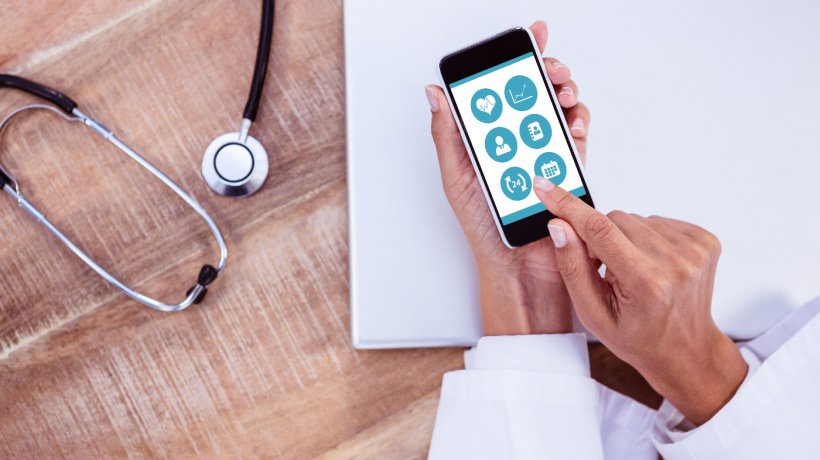Transforming Healthcare For Patients And Providers With Mobile Applications
In recent years, the healthcare industry has faced a major change in its system following technological changes. One of the major changes healthcare faced was the incorporation of mobile applications. Mobile applications have changed the meaning of communication, convenience, and accessibility among providers and patients. This article will explore how mobile applications can help the healthcare sector transform its functions and lead the industry forward, through business growth and improved patient care.
The Rise Of Mobile Applications In Healthcare
Mobile applications have become a basic tool for the healthcare sector, offering a wide range of benefits to the overall industry and its growth. With technological advancement, the healthcare business needs to adopt strategies that will help them stay updated on the latest trends. Let’s explore those specific ways mobile apps are shaping the healthcare sector.
1. Improving Patient Engagement And Care Management
Mobile apps have made the lives of patients easy by empowering them to keep a track record of their health through specific healthcare applications. Through these medical health monitoring apps, patients can track vital signs, record any symptoms, and monitor medication adherence easily from their smartphones. These applications are designed in a way that enables real-time communication with healthcare providers directly, providing timely consultations and personalized healthcare plans.
2. Mobile Apps Streamlining Healthcare Administrative Tasks
Despite the patient’s direct engagement and care management, mobile applications also help streamline healthcare administrative tasks within its vicinity. For example, applications for appointment scheduling reduce the no-show rate and easily manage appointments by setting the exact time for the doctors and sending automated reminders to the patients.
Electronic Health Record (EHR) apps help the administration department secure the patient's track record in bulk and make it easily accessible, improving accessibility and reducing paperwork. Billing and payment applications have made transactions incredibly easy, improving revenue cycle management for healthcare organizations.
3. Telemedicine And Remote Consultations
The rise of mobile applications has made telemedicine more common and popular, allowing patients to directly communicate for virtual appointments with healthcare providers. These applications help patients analyze their disease through symptoms and receive recommendations on medication, allowing them to save time going to hospitals and waiting for their turns.
4. Health And Wellness Promotion
The role of mobile applications in health and wellness promotion is very important. In this era, where mobile applications and mobile devices are the main necessities of everybody’s life, there has been an increase in screen time from 5 to 6 hours daily, and people, while scrolling, come across different mobile applications and download them. Fitness apps are introduced, keeping track records of fitness and giving you an ideal track record and plans for your health, motivating users to make healthier life choices. Wellness apps provide tools for health issues including stress, supporting mental health issues, and practicing mindfulness, which all contribute to overall well-being and preventive care.
Are You Looking For Your Own Healthcare Business Application?
If you’re thinking about creating a mobile application for your healthcare business, it’s important to partner with the best mobile application development company. Not just the best—it’s important to choose a trusted mobile application company that will help and customize your needs into an application that meets your unique requirements.
Tips For Choosing A Mobile App Development Company
Before choosing a mobile application development company for your healthcare business, consider the following tips:
- Industry experience
Look for a web and application development company, with a proven track record in healthcare app development. - Technical expertise
Make sure the company has expertise in mobile application development, including compliance with healthcare regulations and standards. - Client references
Review their references and case studies from previous healthcare clients to assess the company's capabilities and reliability. - Quality assurance processes
Ensure strong quality assurance practices to confirm that developed apps meet high standards for performance, security, and usability in healthcare settings. - Data security measures
Make sure the company uses strict data security measures to safeguard patient’s sensitive information and comply with privacy regulations in the industry.
Conclusion
In conclusion, mobile applications have become a powerful tool driving innovation and making human life easy, not just in the healthcare sector but in various other sectors. By utilizing mobile application technology in various healthcare departments, healthcare providers can streamline patient engagement, and operations, and deliver more personalized care. To fully benefit from the healthcare applications, teaming up with a professional web and app development company is very important. Utilize mobile applications in your business and stay up-to-date with the advancements.

